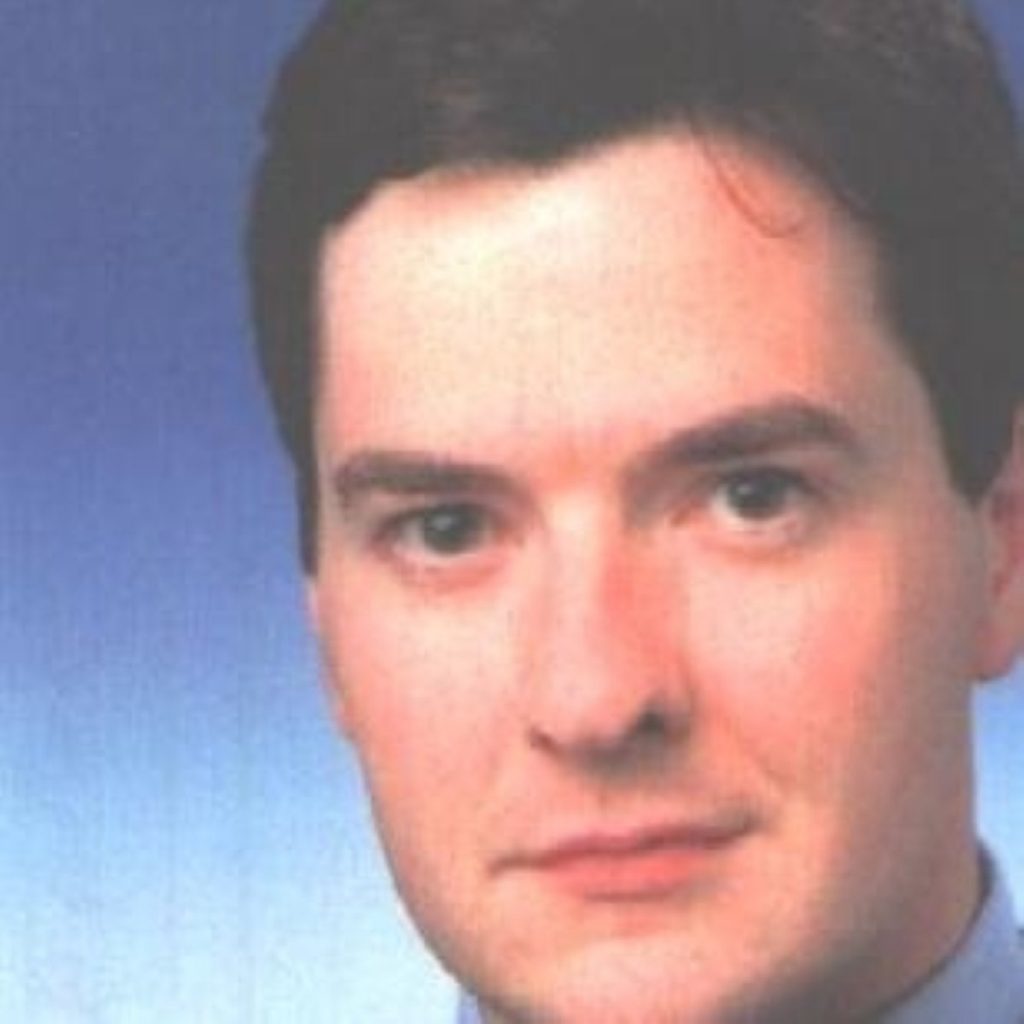Tories ‘will not promise tax cuts’ at next election
The Conservatives are unlikely to promise tax cuts at the next general election, the shadow chancellor has confirmed.
George Osborne said that while the party would continue to work for lower taxes in the long-term, the “simple truth” was that the economy and the state of the public finances would not allow them within the next few years.
He admitted this would be “a disappointment to a few in my party”, who still believed that up-front promises of tax cuts were the key to winning elections.
But the Tories had fought the last three elections on a tax-cutting ticket, and had lost every time, Mr Osborne said. By contrast, Margaret Thatcher had made no such promises in 1979.


“As the economy grows, and revenue flows into the exchequer, we will share the proceeds of that growth between improving public services and reducing borrowing or lowering taxes,” he told the Institute of Directors in Manchester.
“Over an economic cycle, the state will consume a smaller share of national income. That is the right approach. It is the only long-term, sustainable path to lower taxes. It means that we will have lower taxes that are built to last.”
He added: “Some may say that this is somehow ‘un-Conservative’. I say Conservatives win the public’s trust when they put economic stability first.”
A key part of economic stability, Mr Osborne argued, was providing the proper transport infrastructure and high quality education to provide it with the skilled workforce that can compete in a global economy.
“We need to move towards lower taxes in a way that supports economic stability and helps strengthen public services,” he said.
The shadow chancellor said that promising tax cuts now would generate some “initial press excitement” but doubts would soon start to be raised about the Conservatives’ economic competence.
“Public cynicism would set in. People remember what happens when politicians make shallow promises on tax. We will not do that,” he insisted.
However, Mr Osborne promised to simplify the tax system, after chancellor Gordon Brown’s “obsessions with meddling and stealth” had led to an “unfair, inefficient, complex and stealthy tax system” that was strangling Britain’s potential.
The party’s tax reform commission, set up last September, would report back this summer on how the administrative costs of taxation could be cut, without reducing the actual tax burden, he said.
“We want people to be able to understand what taxes they are being asked to pay. We want those who have to fill in self-assessment forms to be able to do so without the help of an accountant. Indeed, we want fewer people to have to fill in forms, full stop,” he said.

